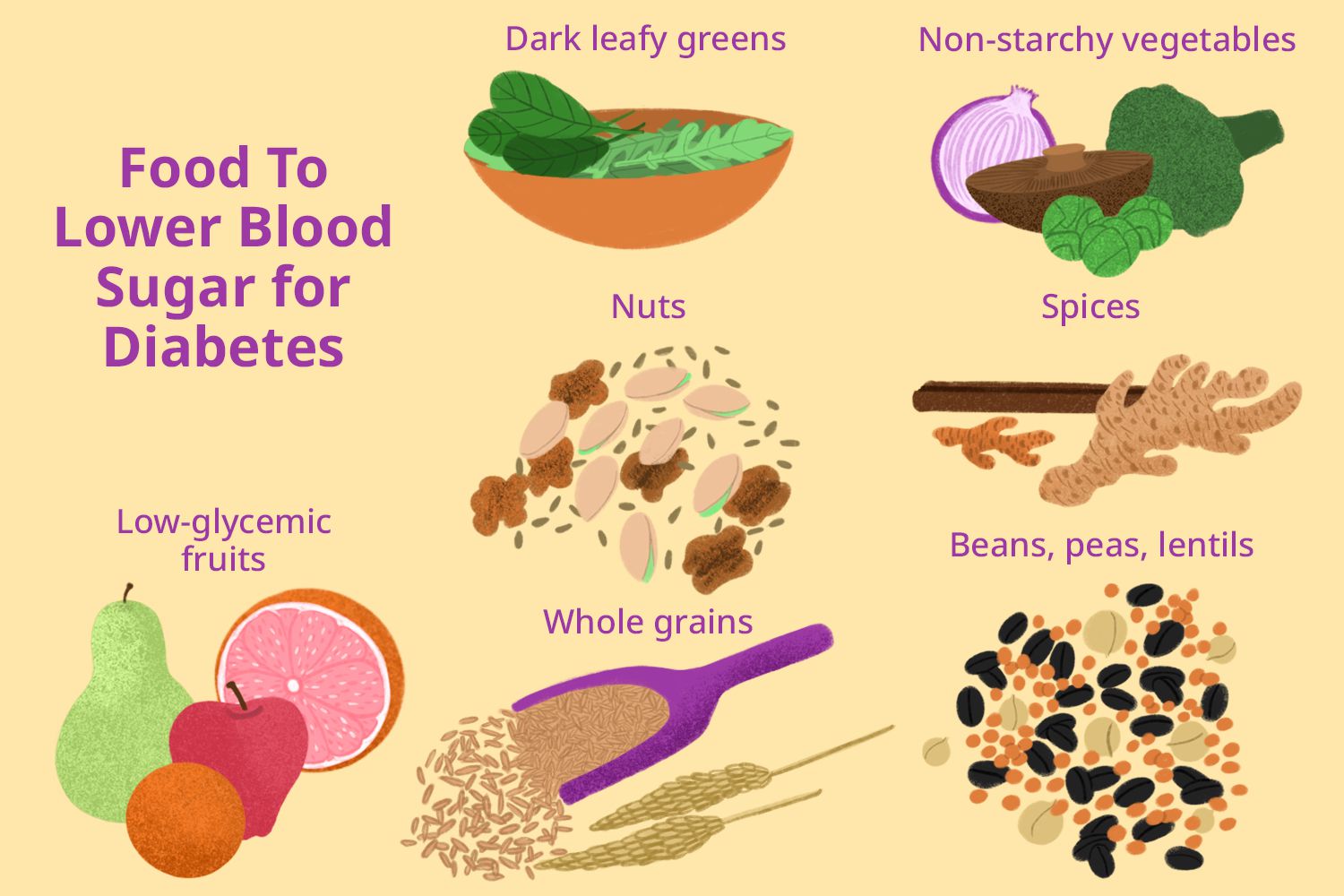Introduction

The impact of diet on blood sugar levels is a topic of concern for many individuals, particularly those with diabetes or pre-diabetes. While carbohydrates are often considered the main culprits in raising blood sugar, it is important to understand the role of other food groups, such as proteins, in this process. One such protein source that often comes into question is chicken. In this article, we will explore the nutritional composition of chicken, its effect on blood sugar levels, and alternative protein options for those concerned about their blood sugar. Let’s dive deeper into the connection between chicken consumption and blood sugar.
Understanding The Impact Of Diet On Blood Sugar Levels
A person’s diet plays a crucial role in managing blood sugar levels. When we consume food, our body breaks down carbohydrates into glucose, which enters the bloodstream and raises blood sugar levels. However, not all foods have the same impact on blood sugar. Foods high in refined carbohydrates, such as sugary drinks and processed snacks, can cause a rapid spike in blood sugar levels. On the other hand, foods rich in fiber, protein, and healthy fats, like vegetables, whole grains, and lean proteins like chicken, can help stabilize blood sugar levels. By practicing mindful eating and choosing nutrient-dense foods, individuals can better manage their blood sugar and promote overall well-being.
Common Misconceptions About Chicken Consumption
One common misconception is that consuming chicken can lead to elevated blood sugar levels in people with diabetes. However, this is not true. Chicken is actually a great option for individuals managing diabetes due to its low glycemic index. Another misconception is that chicken is high in fat and therefore unhealthy. While it is true that chicken skin contains more fat, choosing lean cuts and removing the skin can make chicken a healthy protein source. It’s important to debunk these misconceptions and recognize the benefits of including chicken in a balanced and healthy diet.
Nutritional Composition Of Chicken

Chicken is a highly nutritious food that provides a range of essential nutrients. It is a great source of high-quality protein, which is crucial for building and repairing tissues in the body. Chicken also contains important vitamins and minerals such as vitamin B6, vitamin B12, zinc, and selenium. It is low in carbohydrates, making it a suitable option for individuals who need to manage their blood sugar levels. Additionally, chicken is relatively low in fat, especially if the skin is removed. This makes it a healthy choice for those looking to maintain a balanced diet while keeping their blood sugar in check.
Protein Content In Chicken
Chicken is a fantastic source of protein, making it an excellent choice for those looking to maintain healthy blood sugar levels. The protein content in chicken can vary depending on the cut and cooking method. On average, a 3-ounce serving of chicken breast provides about 26 grams of protein, while a 3-ounce serving of chicken thigh contains approximately 19 grams. Protein plays a crucial role in stabilizing blood sugar levels by slowing down the absorption of carbohydrates. Including chicken in your meals can help you feel fuller for longer and maintain steady blood sugar throughout the day.
Fat Content In Different Parts Of Chicken
When it comes to the fat content in different parts of chicken, there is variability depending on the specific cut. The skin of chicken is higher in saturated fats, which can have an impact on cholesterol levels and indirectly affect blood sugar control by contributing to insulin resistance. On the other hand, chicken breast without the skin is low in fat, mainly consisting of unsaturated fats. Thighs and legs of chicken, however, have a higher fat content, comprising a mix of saturated and unsaturated fats. It is important to consider these variations when assessing the potential impact of chicken on blood sugar levels.
Effect Of Chicken On Blood Sugar

Effect of Chicken on Blood Sugar:
While chicken itself does not contain carbohydrates and does not directly raise blood sugar levels, it can still have an impact on blood sugar control. The protein content in chicken can stimulate the release of insulin, which is necessary for managing glucose levels in the body. However, the effect may vary depending on the individual’s metabolism, portion sizes, and cooking methods. It is important to consider the overall composition of the meal, including vegetables, whole grains, and legumes, alongside chicken to ensure a balanced and healthy diet that effectively manages blood sugar levels.
Does Chicken Raise Blood Sugar Levels?
Chicken itself does not raise blood sugar levels due to its low carbohydrate content. In fact, chicken is a lean source of protein, which can help stabilize blood sugar levels. Protein takes longer to digest and can slow down the absorption of carbohydrates from other foods in a meal, resulting in a more gradual rise in blood sugar. However, it is important to consider the overall composition of the meal. Pairing chicken with vegetables, whole grains, and legumes can provide a balanced diet that effectively manages blood sugar levels.
Impact Of Preparation Methods On Blood Sugar Response
The way chicken is prepared can significantly affect its glycemic index (GI), which measures how quickly a food raises blood sugar levels. Grilled or baked chicken typically has a lower GI compared to methods that involve breading or frying, as the added carbohydrates from coatings can increase the GI. For individuals concerned about blood sugar levels, it is important to choose cooking methods that minimize the use of carbohydrates and unhealthy fats. By opting for healthier preparation methods, such as grilling or baking, chicken can be enjoyed as part of a balanced diet without causing significant spikes in blood sugar levels.
Alternative Protein Sources

Alternative protein sources can be a great option for individuals concerned about blood sugar levels. Plant-based proteins, such as tofu, tempeh, and legumes, are low in carbohydrates and can help regulate blood sugar. Additionally, seafood like salmon and tuna are high in protein and omega-3 fatty acids, which have been linked to improved blood sugar control. Other options include lean cuts of pork and beef, as well as eggs and dairy products. Incorporating these alternative protein sources into your diet can provide a variety of nutrients while minimizing the impact on blood sugar levels. Including a mix of these protein sources can offer a balanced and healthy approach to managing blood sugar.
Comparing The Glycemic Index Of Chicken With Other Proteins
The glycemic index (GI) is a measure of how quickly a food raises blood sugar levels. When comparing the GI of chicken with other proteins, chicken is considered to have a low GI. This means that it has a minimal impact on blood sugar levels, making it a suitable choice for individuals concerned about maintaining stable blood sugar. In contrast, some higher GI proteins, such as certain processed meats or sugary protein sources, can cause a more significant increase in blood sugar. Choosing proteins with lower GI values, like chicken, can contribute to better blood sugar control.
Healthier Protein Options For Individuals Concerned About Blood Sugar Levels
For individuals concerned about their blood sugar levels, there are several healthier protein options to consider. These protein sources not only provide the necessary nutrients but also have a minimal impact on blood sugar. Some examples include lean cuts of beef, turkey, fish, tofu, and legumes such as lentils and chickpeas. These options are lower in fat and carbohydrates compared to processed meats and can be incorporated into a balanced diet without causing significant spikes in blood sugar levels. Choosing these healthier protein sources can help individuals maintain stable blood sugar levels while enjoying a variety of delicious and nutritious meals.
Expert Opinions And Studies

Expert opinions and studies have provided valuable insights into the relationship between chicken consumption and blood sugar levels. According to the Nurses Health Study, frequent poultry intake was associated with a decreased risk of type 2 diabetes. Additionally, research findings suggest that there is no significant association between the consumption of chicken and glycemic control. However, it is important to note that these studies do not specifically focus on the impact of chicken on blood sugar levels. Further research is needed to provide more conclusive evidence on the connection between chicken consumption and blood sugar.
Insights From Health Experts On Chicken Consumption And Blood Sugar
Health experts generally agree that chicken consumption does not raise blood sugar levels significantly. Chicken is considered a lean source of protein, which can help stabilize blood sugar when consumed as part of a balanced meal. Incorporating chicken into a diet that includes a range of vegetables, whole grains, and legumes can provide a spectrum of nutrients while effectively managing blood sugar. It is important to note that individual factors such as portion sizes and cooking methods can influence the impact of chicken on blood sugar. Consulting a healthcare professional or registered dietitian can provide personalized guidance on maintaining blood sugar levels while enjoying chicken as part of a healthy diet.
Research Findings On The Relationship Between Chicken And Blood Sugar Levels
Numerous studies have explored the impact of chicken consumption on blood sugar levels. One study published in the Journal of Nutrition found that incorporating chicken as part of a meal led to a smaller increase in post-meal blood sugar levels compared to a meal without chicken. Another study in the American Journal of Clinical Nutrition observed that a diet high in chicken resulted in improved blood sugar control in individuals with type 2 diabetes. These findings suggest that chicken can be a beneficial protein source for managing blood sugar levels. However, further research is needed to fully understand the specific mechanisms and long-term effects.
Conclusion

In conclusion, the impact of chicken consumption on blood sugar levels is dependent on various factors such as cooking methods and portion sizes. While chicken itself is a low-carbohydrate food and does not directly cause a significant spike in blood sugar levels, it can play a role in blood sugar management when consumed as part of a balanced meal. Incorporating a range of vegetables, whole grains, and legumes alongside chicken ensures a spectrum of nutrients, while effectively managing blood sugar levels. It is important to consider individual metabolism and maintain portion control for optimal blood sugar control.
Key Takeaways On The Connection Between Chicken Consumption And Blood Sugar
Consumption of chicken does not directly raise blood sugar levels. However, the overall impact on blood sugar management depends on various factors such as cooking methods and portion control. Chicken is a good source of lean protein, which can help stabilize blood sugar levels and promote satiety. Choosing skinless chicken and lean cuts can further reduce the intake of saturated fats and calories, supporting better blood sugar control. Incorporating a variety of vegetables, whole grains, and legumes alongside chicken ensures a well-rounded meal that can effectively manage blood sugar levels.
Recommendations For Balanced And Healthy Eating Habits
To maintain balanced and healthy eating habits, it is essential to incorporate a variety of nutrient-rich foods into your diet. Along with consuming chicken, prioritize fruits, vegetables, whole grains, and legumes, as they provide essential vitamins, minerals, and fiber. Opt for lean cuts of chicken and remove the skin to minimize intake of saturated fats. Practice portion control to avoid overeating. Additionally, avoid deep-fried preparations and opt for healthier cooking methods like grilling, baking, or steaming. Stay hydrated by drinking plenty of water and limit the intake of sugary beverages. Regular physical activity is also important for overall health and blood sugar management. By following these recommendations, you can maintain a balanced and healthy diet while enjoying chicken as part of your meals.
FAQ About Health Concerns: Does Chicken Raise Blood Sugar?
Q: Is chicken safe for individuals with high blood sugar levels?
A: Yes, chicken is a lean source of protein that typically does not raise blood sugar levels significantly when consumed in moderation.
Q: How should chicken be prepared to maintain blood sugar levels?
A: Opt for recipes that involve baking, grilling, or roasting chicken instead of frying it. It’s also important to avoid adding high-sugar sauces or marinades.
Q: Are there specific parts of the chicken that are better for managing blood sugar levels?
A: Skinless chicken breasts and thighs are generally the best choices as they contain less saturated fat than other cuts.
Q: Can consuming chicken alongside high-carb foods impact blood sugar levels?
A: Pairing chicken with high-carb foods like white rice or pasta can lead to an increase in blood sugar levels. It’s advisable to balance your meal with whole grains and vegetables instead.
Q: Should individuals with diabetes be cautious about eating chicken?
A: While chicken can be a healthy protein choice for individuals with diabetes, portion control is essential to manage blood sugar levels effectively. It’s best to consult a healthcare provider or a dietitian for personalized advice.

The Finer Diner has a rich history deeply rooted in the Mt. Oliver and Hilltop community. Our journey began with a simple yet ambitious vision – to create a welcoming space where friends and families could come together to enjoy delicious, comforting meals in a classic diner-style setting. Since our establishment, we have been dedicated to serving food, creating lasting memories, and fostering a sense of belonging within our community. Our commitment to quality, authenticity, and exceptional service has been the cornerstone of our success.